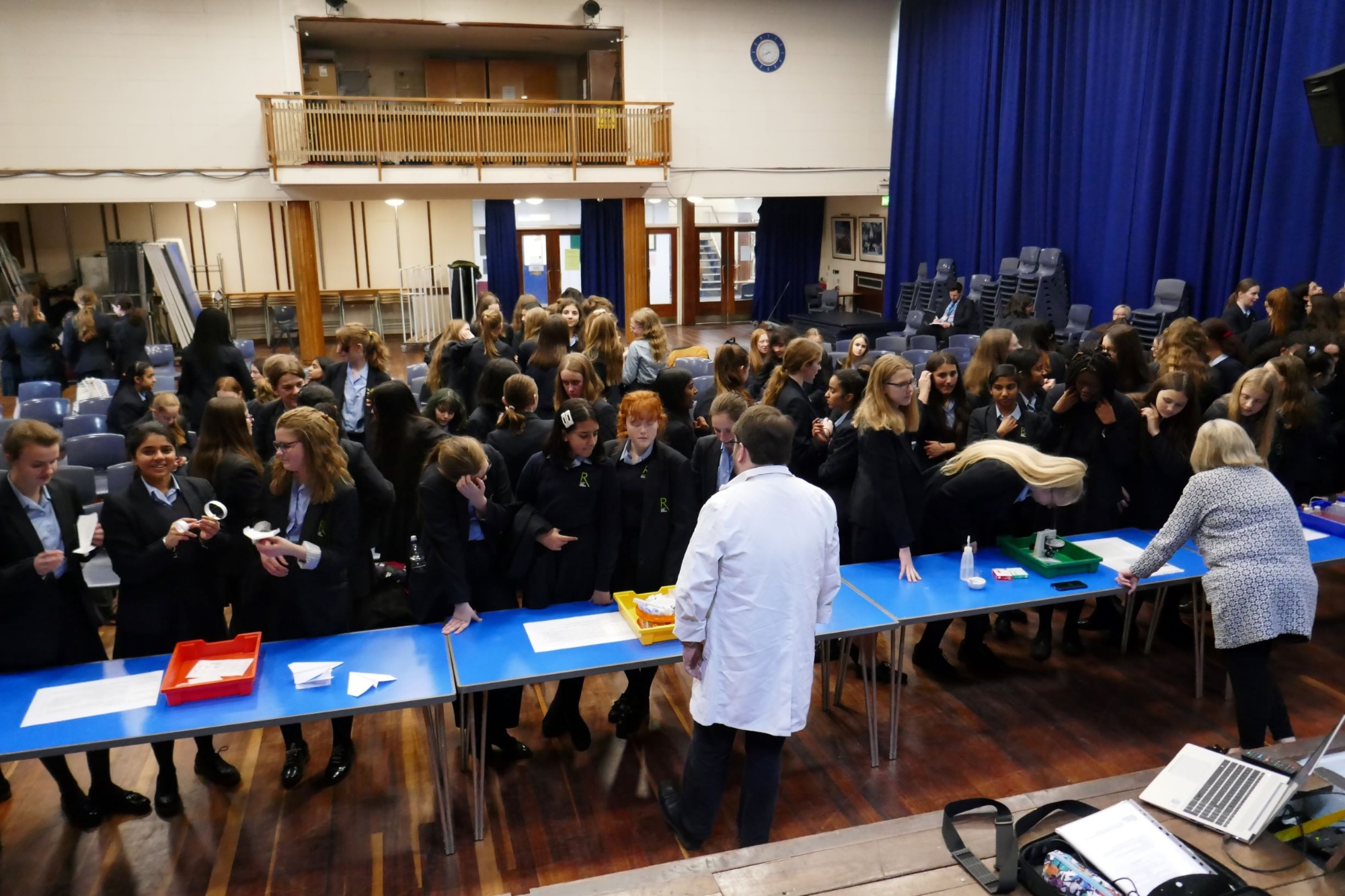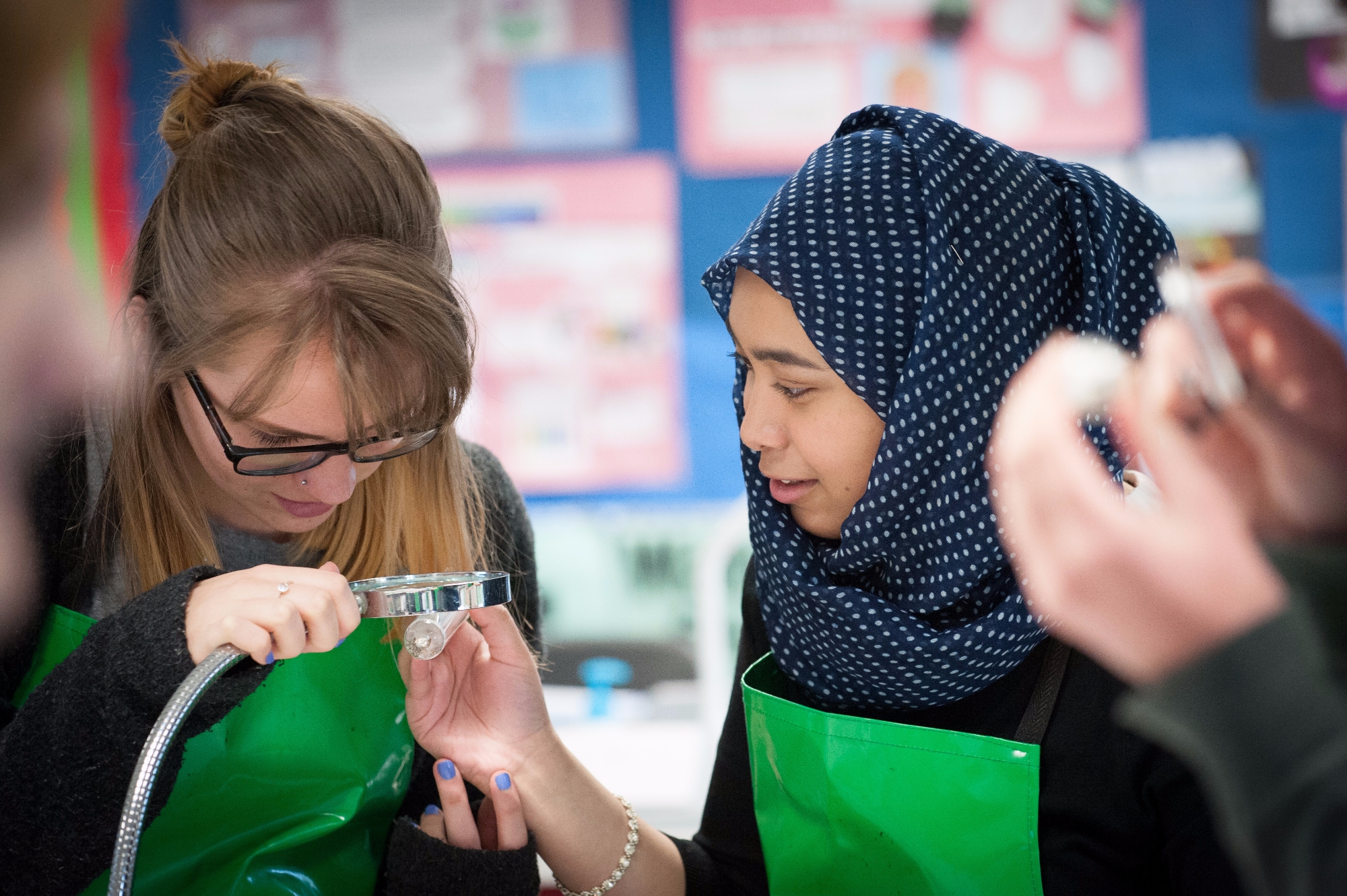Philosophy and Religious Studies
PRS at RUGBY HIGH SCHOOL
PRS Department Vision Statement
The first aim of Philosophy and Religious Studies at Rugby High School is to inspire in our students a life-long curiosity, about the ideas that have shaped our world, that will propel them to keep asking questions and to really enjoy their pursuit of discovery. The second aim is to equip our students with the skills and the confidence to enable them to thrive. We hope to enrich our students’ understanding, not only of the major world religions, but also the philosophical and ethical principles that underpin a wide range of beliefs, whether they are religious or secular.
Students are encouraged to participate in dialogue, to enable self-expression, reflection and ultimately, personal growth. PRS draws upon its multidisciplinary links to philosophy, theology, and the human and social sciences, to investigate different worldviews and to consider the meaning and value of concepts, such as truth and justice, in a variety of different contexts. We want our students to engage with the issues that really matter to each of them, and in the wider world today. The core question which lies at the heart of this endeavour is: what difference does it all make in the world?
Philosophy & Religious Studies is part of the core curriculum at RHS. All our students will study the subject from years 7 to 11. Students have additional opportunities to study Religious Studies at GCSE and A level in order to extend and deepen their knowledge and understanding of philosophy, theology and ethics, and enhance their analytical and critical evaluation skills, as well as their ability to formulate and critique arguments.
Year 7 PRS
Course content:
- The concept of ‘worldview’
- The development of religions around the world
- Beliefs and concepts religions share
- The impact of religion in the world today
- The Jewish Covenant
- A history of Judaism
- The Law of Moses
- Orthodox and Reform Judaism
- Kosher Food Laws
- The Synagogue
- The Holocaust
- The Trinity
- The Christian concept of the Incarnation
- Debates about miracles
- Miracles described in the Gospels
- Gospel accounts of the Resurrection
- The development of Christianity
- Denominations
- Forgiveness & Reconciliation
- The bombing of Coventry Cathedral
- in WW2 as a case study
- The Cross of Nails Community
- Debates about forgiveness
Assessment:
Autumn term - Baseline Assessment
Spring term - “Having 613 rules to follow is better than having none” Discuss
Summer term - “A miracle is an act of God” Discuss
Year 8 PRS
Course content:
- Hinduism:
- The origins of Hinduism
- Hindu beliefs about God and avatars
- Forms of Hindu worship
- Hindu beliefs about reincarnation
- The Varna System
- Gandhi’s peaceful protests against British rule
- Sikhism
- The Five ‘Ks’ of Sikhism
- The life of Guru Nanak
- The Ten Gurus of Sikhism
- The Guru Granth Sahib
- The role of the Gurdwara
- Key teachings of Sikhism on God, spirituality, and morality
- Animal Rights
- Significant similarities and differences between human beings and other animals
- Christian/Jewish/Hindu/Sikh attitudes to the treatment of animals.
- Utilitarian attitudes to the treatment of non-human animals, including the idea of speciesism
- Facts and arguments concerning the treatment of animals in a range of settings: captivity, experimentation, clothing, etc.
Assessment:
Autumn term - ‘The Varna system is the best way to organise society.’ Discuss
Spring term - ‘’Be simple in your food, dress and habits is the most important belief in Sikhism’’ Discuss
Summer term - Group research project and presentation on animal ethics.
Year 9 PRS
Course content:
- Challenges to Religious Belief
- The Galileo Case (the Copernican Revolution)
- Proof Vs Belief
- Genesis 1
- Edwin Hubble’s Expanding Universe
- Genesis 2
- Darwin’s ‘On the Origin of Species’
- Creationism
- Richard Dawkins: An atheist Scientist
- John Polkinghorne: A Christian Scientist
- The Problem of Evil
- Buddhism
- The Life of the Buddha
- The 4 Sights
- The 4 Noble Truths
- Noble 8 Fold Path
- 3 Universal Truths
- 3 Jewels
- 3 Poisons
- 10 Negative Actions
- 5 Moral Precepts
- Animal Ethics
- Animals in Captivity
- Animals as a clothing resource
- The use f animals in medical research
- Peter Singer’s Speciesism
- 2 Religious perspectives on the rights of animals
Assessment:
Autumn term - “There are no conflicts between religion and science” Discuss
Spring term - “Buddhism is a Philosophy, not a Religion” Discuss
Summer term - Group research project on religious perspectives on the treatment of animals
GCSE PRS
Examination board: Edexcel GCSE Religious Studies B
Introduction to the subject at GCSE
The GCSE Religious Studies course will not only develop your knowledge and understanding of religion in the 21st Century: it will also enrich your understanding of the world you live in. By exploring both religious and secular perspectives in contemporary social and moral debates, your critical thinking skills will be tested and your world view will be challenged! The course requires students to grapple with controversial issues and asks you to really think about the wider implications of different beliefs and practices for the human experience. These are some of the questions you might be asked to think about:
- Is it ever ok to end a human life?
- What does gender mean in the 21st Century?
- Is there such a thing as necessary evil?
- When is it ok to start a war?
- What’s wrong with idolatry?
- How should criminals be treated?
Why choose this subject for GCSE?
The course aims to equip you with valuable skills that allow you to stand out as an independent thinker. Philosophy & Religious Studies helps to prepare students for a diverse range of future careers: from those requiring sensitivity towards others, to; those requiring an ability to challenge the way other people think. Here are some examples: law, journalism, medicine, social work, teaching, nursing and creative industries.
Course content:
Paper 1 - Religion and Ethics, based on the study of Christianity, covering:
- Christian Beliefs
- Marriage and the family
- Living the Christian Life
- Matters of Life and Death
Paper 2 - Religion, Peace and Conflict, based on a study of Islam, covering:
- Islamic Beliefs
- Peace and Conflict
- Living the Islamic Life
- Crime and punishment
Method of Assessment
100% exam (2 papers)




